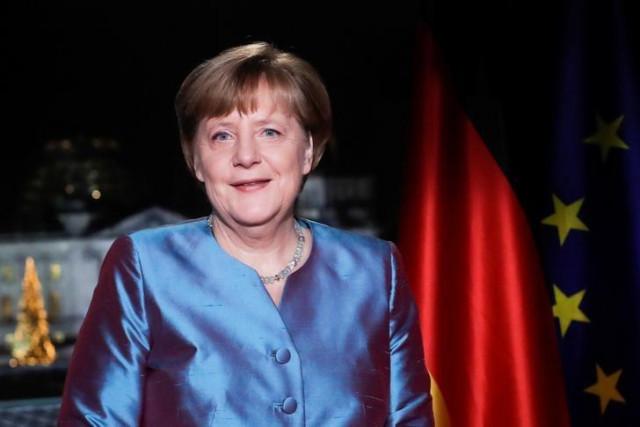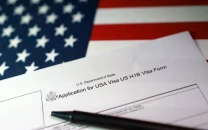Merkel's conservatives could govern with Greens, FDP-German poll
conservatives and Social Democrats have said they hope to end the current two-way coalition

German Chancellor Angela Merkel poses for photographs after the television recording of her annual New Year's speech at the Chancellery in Berlin, Germany. PHOTO:REUTERS
Some CDU lawmakers, including Deputy Finance Minister Jens
Spahn, said this week such a coalition could also be an option
on the national level after the September election. The Forsa poll, conducted for Stern magazine and broadcaster RTL before Sunday's regional election, showed support for the CDU unchanged at 36 per cent, while the Social Democrats (SPD), currently the junior partner in Merkel's "grand coalition", gained one percentage point to 29 per cent.
Angela Merkel responds to the question 'are you a feminist?' in the most bizarre way
Both the conservatives and Social Democrats have said they hope to end the current two-way coalition and lead the government with smaller partners after September. The FDP and the Greens both stood at 7 per cent each in the Forsa poll of 2,004 potential voters, giving the three parties a combined 50 per cent, just enough to govern. The FDP served as junior coalition partner to the CDU and its Bavarian sister party, the CSU, for almost half of federal Germany's post-war history.
It dropped below the 5 per cent threshold for legislative representation in the 2013 national election but is expected to exceed that level in September. The anti-immigrant Alternative for Germany (AfD) dropped one percentage point to 7 per cent in the poll, which was conducted on May 2-5 and has a margin of error of plus or minus 2.5 percentage points. Merkel expanded her lead over the SPD's top candidate Martin Schulz, the former president of the European Parliament, gaining one percentage point to 48 per cent, while Schulz dropped one point to 27 per cent, the poll showed.
It also showed support for Schulz among his own party members dropped seven percentage points to 67 per cent from the previous poll a week earlier, while Merkel's support among CDU supporters remained steady at 90 per cent.


















COMMENTS
Comments are moderated and generally will be posted if they are on-topic and not abusive.
For more information, please see our Comments FAQ